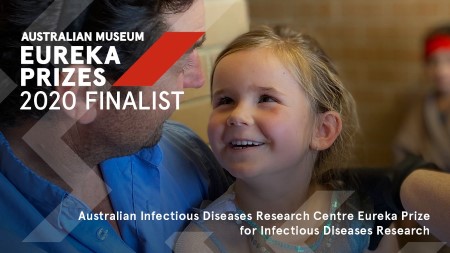PAEDS
Paediatric Active Enhanced Disease Surveillance (PAEDS) is a system to identify conditions of public health importance in children, with a particular focus on vaccine-preventable diseases. In addition to operating here at Perth Children's Hospital, PAEDS operates at children's hospitals across Australia.
The information collected is used to help identify and monitor specific paediatric conditions in children who are unwell enough to come to the hospital, such as influenza, pertussis and meningococcal disease. It also assists researchers in understanding what factors put children at risk of developing certain diseases and to monitor the effectiveness and safety of vaccination.
COVID-19 Surveillance
In 2020, COVID-19 was added to the list of conditions covered under PAEDS. Our partnership with FluCAN to collect influenza data was expanded to collect enhanced clinical data on all children presenting to our PAEDS sites with COVID-19. This information was used to help understand the incidence and severity of children requiring hospitalisation for coronavirus.
PAEDS has also formed national and international collaborations to ensure any increase in severe COVID-19 related outcomes in children are rapidly detected and comprehensively investigated. Surveillance of COVID-19 will be used to support the national public health response to the pandemic and is well-placed to prospectively identify children presenting to our hospitals with COVID-19 infection.
An another addition was surveillance around PIMS TS, a condition that has been provisionally named Paediatric Inflammatory Multisystem Syndrome Temporally and is associated with COVID-19. The aim of this study is to determine the overlapping features of PIMS-TS with Kawasaki disease and COVID-19 in Australian children.
Australian Paediatric Influenza Immunisation Research Group - Eureka Prize Finalist
The work of PAEDS and Australia's top infectious disease researchers was recognised this year with a finalist position at the country’s most prestigious science awards – the Australian Museum Eureka Prizes.

PAEDS formed part of the the Australian Paediatric Influenza Immunisation Research Group - a national collaboration who built upon a decade of scientific evidence to advocate for Australia's first-ever nationwide childhood influenza immunisation policy. This led to a dramatic increase in the number of children vaccinated against flu – from just 80,000 in 2017 to an estimated 1 million in 2020.
The implementation of this life-saving public health measure is set to reduce the number of children in this age group hospitalised by severe influenza by over 50 per cent – a massive acheievement by any standards.
In addition to PAEDS, the Australian Paediatric Influenza Immunisation Research Group was made up of:
- The Wesfarmers Centre of Vaccines and Infectious Diseases – The Kids Research Institute Australia
- The University of Western Australia
- Western Australian Department of Health
- National Centre for Immunisation Research and Surveillance
- InFLUenza Complications Alert Network
- AusVaxSafety Consortium
Unfortunately, the group didn't take out the top award, but according to Prof Peter Richmond, Head of the Vaccines Trial Group, the most important prize is the decrease in influenza morbidity in young children and they certainly achieving that!
Read more about the Eureka Prize finalist nomination here.
Find out more about PAEDS via their national website:www.paeds.org.au
